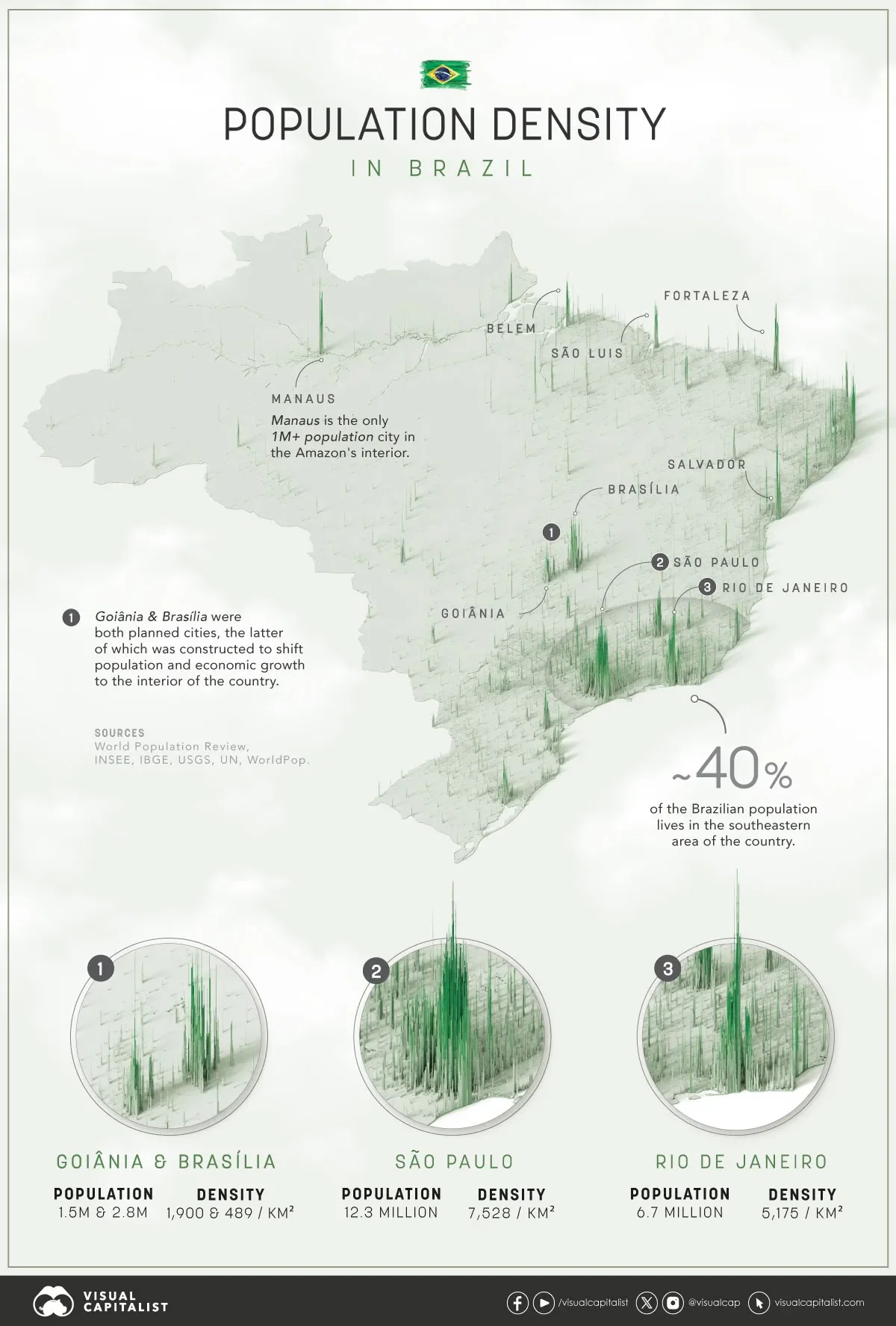Where Data Tells the Story
© Voronoi 2026. All rights reserved.

A map of Brazil with a population density overlay. The higher the spikes on the map, the higher the population density an area has. This type of visualization clearly shows settlement patterns within a selected geographical region.
Brazil is ranked seventh in the world with a total population of 217 million people.
Similar to other large countries–like China, for example–the population is clustered in dense coastal cities, and thins out further into the interior of the continent. In fact, more than half of Brazil's population lives within 150 km of the coast.
Cities in Brazil are dense, but not by global standards. São Paulo is the largest, most dense city in Brazil, but is still only one-third as dense as Mumbai.
What do you notice in this map?